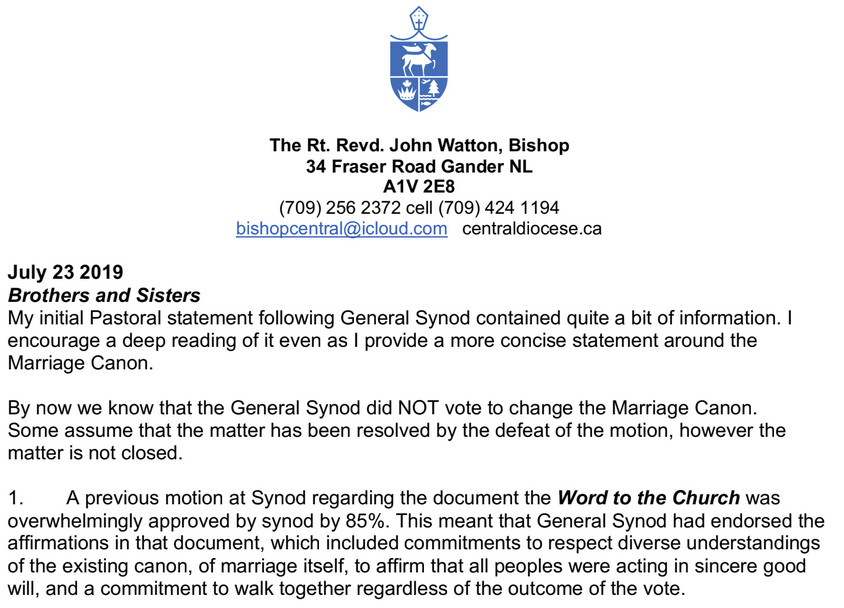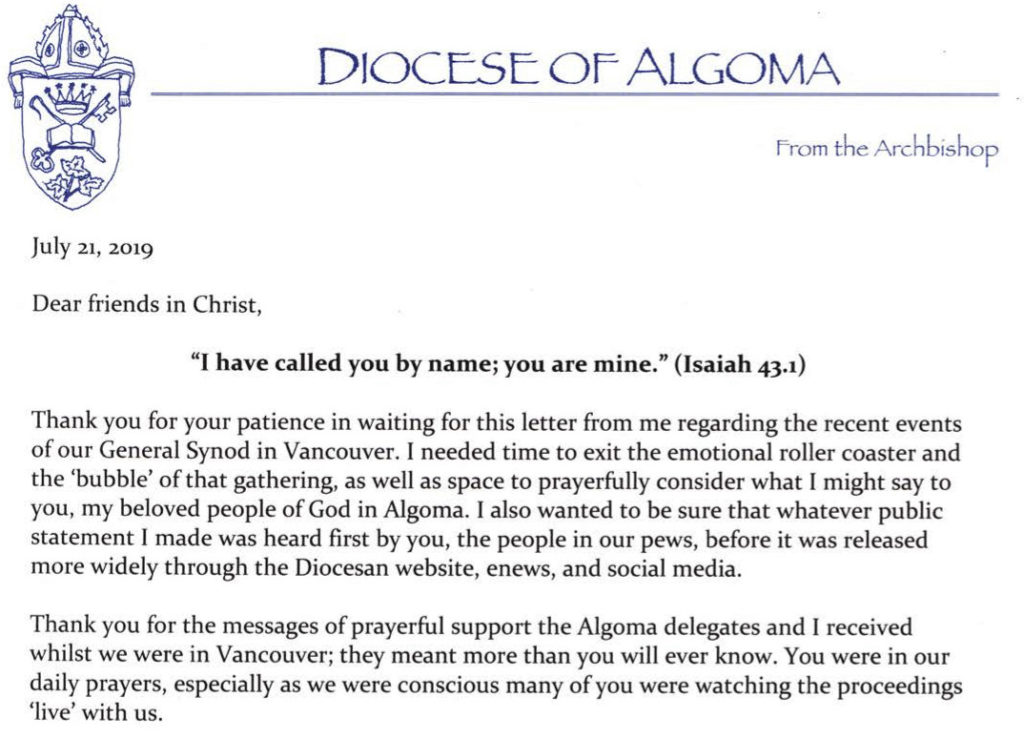With all the excitement about contagion and racism, it almost seemed as if the Anglican church had forgotten that which is most dear to it: sex.
Fear not, the obsession still lives! Archbishop Anne Germond has announced that the Diocese of Algoma will start conducting same-sex marriages.
Things are finally returning to normal.
From here:
I have weighed the matter of same sex marriage in the church carefully and prayerfully, only too aware of the heavy burden that lies on me as the time arrives to make a decision for the Diocese of Algoma. I believe that the decision I have made is the result of my prayerful and attentive listening to Algoma’s corporate discernment over many years and reflects the position and desire of the majority of people in this diocese. I am,therefore,granting permission for duly qualified same sex couples who are part of ecclesial communities and who intend to live in faithful and committed relationships to celebrate the sacrament of marriage in our diocese.
Here is an updated list of dioceses that will marry same-sex couples:
Diocese of Saskatoon
Diocese of Algoma
Diocese of Ontario
Diocese of Central Newfoundland
Diocese of Eastern Newfoundland and Labrador
Diocese of Western Newfoundland
Diocese of New Westminster
Diocese of Toronto
Diocese of Niagara
Diocese of Montreal
Diocese of Ottawa
Diocese of Nova Scotia and Prince Edward Island
Diocese of Rupert’s Land
Diocese of Kootenay
Diocese of Edmonton
Diocese of B.C.
Diocese of Huron



